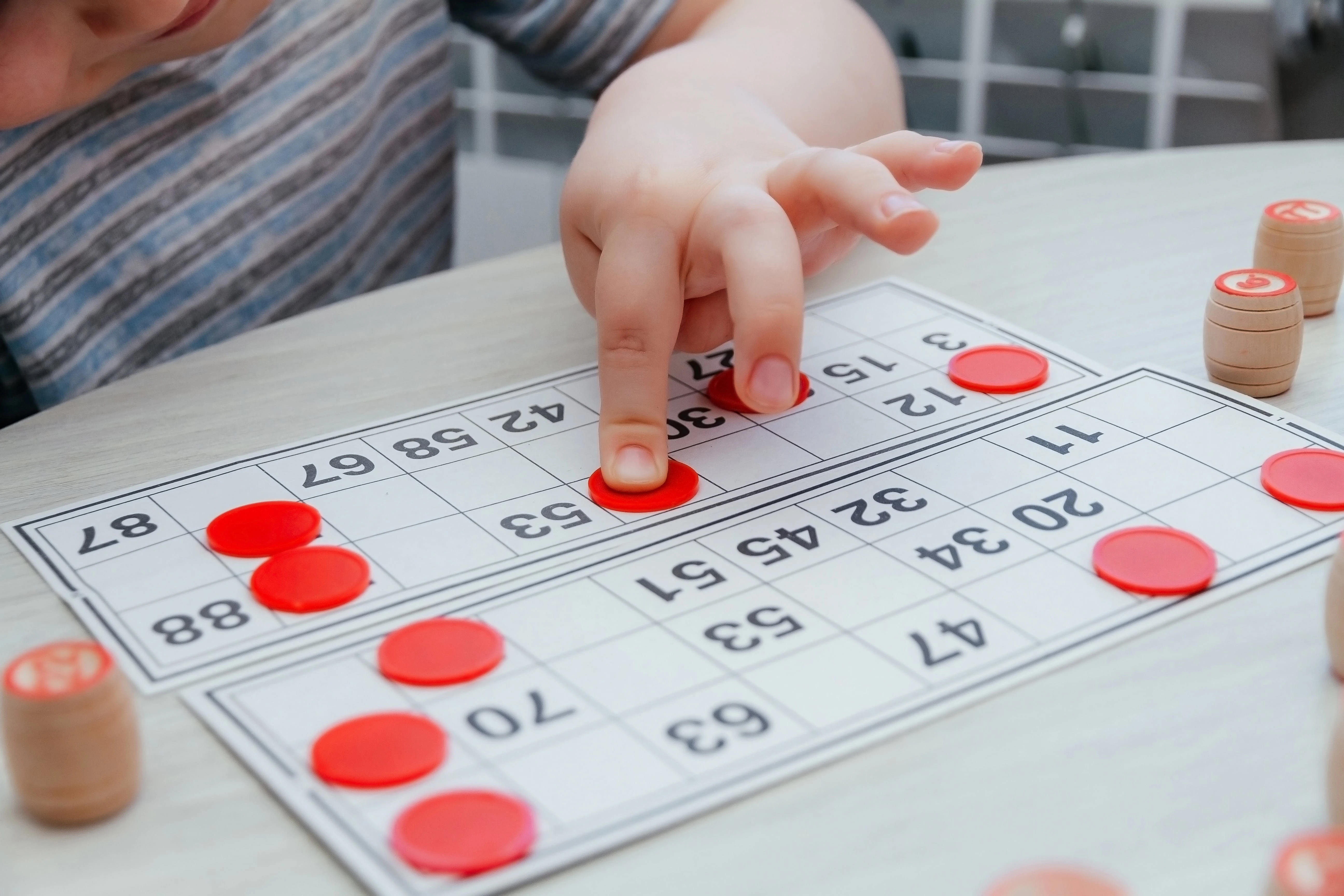Top 5 Games To Help Kids Learn Prime & Composite Numbers

Game #1: Prime or Composite Card Game
This simple, low-prep activity uses a standard deck of cards to help kids practice sorting numbers into prime and composite categories. It’s perfect for small group work or a quick at-home review.
How To Play:
- Use a deck of cards with only the number cards (Ace = 1). Shuffle and stack face down.
- On their turn, a player flips two cards to make a two-digit number.
- Ask them to determine if the number is prime or composite.
- If correct, they keep the card; if not, it goes back in the deck.
- Keep playing until the time or the deck runs out. The player with the most cards wins.
Benefits and Learning Outcomes:
- Hands-on play to reinforce classification skills
- Encourages self-correction and peer discussion
Game #2: Factor Bingo
Factor Bingo is an excellent prime and composite game that blends strategy, chance, and math knowledge. Instead of calling numbers randomly, this version encourages kids to think critically about factors and divisibility.
How To Play:
- Give each player a bingo card (a blank grid).
- Players fill in their cards with numbers within a set range.
- Roll two dice and multiply the numbers to get a product.
- If the product is on a player’s card, they mark it.
- The first player to complete a row shouts “Bingo!” and wins.
Benefits and Learning Outcomes:
- Builds recognition of number factors
- Brings cooperative and competitive energy to learning
Image suggestion: Kids playing a game of bingo
Game #3: Online Prime Number Puzzle Games
Online puzzles are a fantastic way to keep kids practicing prime numbers while having fun. Three standout prime number games are perfect for home or classroom use:
- Pick the Primes: This interactive web game challenges players to pick the prime “fruits” on a number tree as quickly as they can. Each level grows more difficult, giving players repeated practice with identifying primes.
- Primee!: In this action-style app, kids tap prime numbers and swipe away composite ones as numbered balls fly across the screen.
- Primes: This is a sliding-tile puzzle in which players move blue prime tiles to combine them into larger primes. After each move, tiles with composite numbers (in red) break apart into their prime factors. The goal is to keep creating bigger primes before the board fills up.
Benefits and Learning Outcomes:
- Encourages number recognition through repetition
- Makes abstract concepts feel concrete and accessible
Game #4: Prime Number Hopscotch
Here’s a twist on the classic! Prime number hopscotch combines physical movement with math review, making it helpful for kinesthetic learners.
How To Play:
- Draw a hopscotch grid and number the squares.
- Call out “prime” or “composite” before each round.
- Kids jump only on numbers that match the prompt.
- Incorrect jumps lead to fun challenges or a reset!
Benefits and Learning Outcomes
- Supports kinesthetic and multi-sensory learning
- Keeps kids active and focused
- Promotes teamwork and group play
Image suggestion: Children playing hopscotch
Game #5: Prodigy Math Game (Digital)
Prodigy Math is an interactive, fantasy-style game that helps kids practice math by solving problems to win in-game battles.
Players create their personalized math wizard and must answer math questions to progress through the game. When they reach prime and composite number challenges, they apply their skills to defeat characters and earn rewards, making practice feel like play.
Benefits and Learning Outcomes:
- Adaptive difficulty based on the student’s level
- Engagement through play
- In-game rewards to keep kids coming back for more
- Instant feedback for every answer
Bonus Game: The Popcorn Game
Need a game with no setup? The Popcorn Game is a fun way to test number knowledge while building focus and quick recall.
How To Play
- Have kids sit in a circle.
- Let them take turns counting aloud, starting from 1.
- For prime numbers, they say “pop”. For composite numbers, they say “pop-pop.”
- Incorrect responses can lead to funny consequences or elimination.
Benefits and Learning Outcomes:
- Reinforces quick recall of composite and prime numbers
- Boosts listening and focus
- Encourages social interaction
Image suggestion: Kids eating /playing with popcorn
Tips for Parents and Teachers
Want to make these games part of your routine? Try these tips:
- Add one game weekly to your math block or homework plan to build steady practice.
- Encourage kids to explain why they think a number is prime or composite. Talking through their reasoning strengthens verbal skills and deeper understanding.
- Combine games with worksheets or online lessons for balanced instruction.
Turn Practice Into Confidence With Fun Math Games
Helping kids master prime and composite numbers early on builds a strong foundation for everything from fractions to algebra. And the best part? It doesn’t have to feel like hard work. With games like these, kids can stay engaged and excited about learning.
Looking for an all-in-one platform that brings math to life? Explore Prodigy Math, a game-based platform where math practice adapts to your child’s level and keeps them excited about every challenge. Try these games today and watch your child’s skills with numbers grow!










